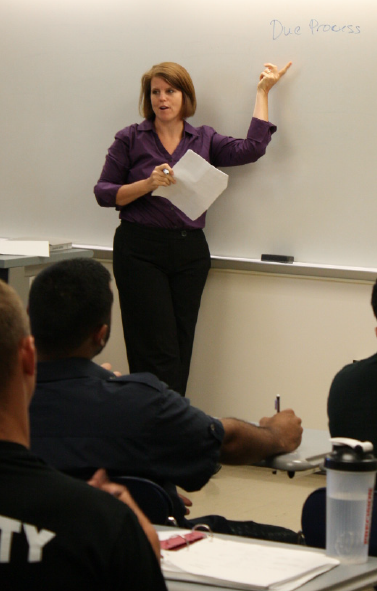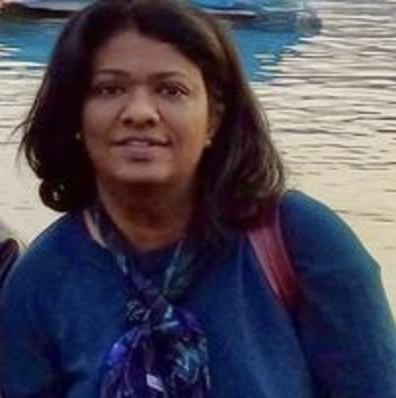Ferguson changes Meramec class syllabi, criminal justice students ask questions

By: SPENCER GLEASON
Editor in Chief
The events that have transpired in Ferguson, Mo., since the shooting of Michael Brown on Aug. 9, have put the relationship between police officers and the communities they serve in the spotlight.
For future police officers within the criminal justice program at STLCC-Meramec, the action and reaction of the past week and a half have been a topic of discussion.
Criminal Justice professor, Michael Hepner, has moved his syllabus around to accommodate student’s questions. Within his policing course, Hepner reviews the use of force typically after Thanksgiving. He has moved that to the second week of class.
“The students want to talk about it. It’s on their minds,” Hepner said. “Given the circumstances, this is a great learning opportunity and a rare chance to incorporate into the classroom a local current event that is making history.”
Hepner, who still works in law enforcement part time, said that there are false impressions that can lead to negative reactions toward police. He said the national media can take the misconceptions and report them as truths.
“[It can] inflame relations between the community and police,” Hepner said. “I have been watching the national news and they often speak about the peaceful protesters in Ferguson while showing video of police using tear gas on not-so-peaceful protesters, which may leave people with the impression that the police are using force against peaceful protesters.”
Hepner said that it is best to be educated on the whole situation and there can be unedited video on YouTube that is not one sided.
“I tell my students that if they want to get into this career, they need to have measured reactions to everything,” Hepner said. “In terms of the events in Ferguson, while they may be under attack by some in the crowd, they are still responsible for protecting the health and safety and constitutional rights of others in the crowd. It can be a delicate balance.”
Hepner said that those going into the criminal justice field need to be even tempered, problem solvers, inquisitive and analytical.
“No two days are the same,” Hepner said. “Officers often need to put their own thoughts and feelings aside and prioritize during moments of chaos in order to do their jobs effectively.”
Criminal justice student, Janey Milligan, will graduate in December with a degree in criminal justice and join the police academy in summer 2015. After changing her degree from education to criminal justice, Milligan said she knows this is the field she wants to pursue.
“You have to know what you signed up for. I know what I’m getting myself into, especially from these recent events. There are good people and there are bad people. There are good cops and there are bad cops. It’s like teachers. I’ve had good teachers and I’ve had bad teachers,” Milligan said. “But I know who I am and I know the type of person that I am. I know that this is what I want to do. So it hasn’t really changed anything.”
Hepner said that some students have shared concerns about the possibility of working in Ferguson.
“I have had a number of criminal justice students, many of whom will be great police officers, tell me that they don’t want to work in the Ferguson area because of recent events,” Hepner said.
Aware of the influence those wearing the badge can have, Hepner said that he advices his students to take pride in caring for all people — in all communities.
“It’s my job to point out that the citizens of Ferguson, no matter what has happened there in the past, are guaranteed certain inalienable rights that can only be protected by good, just and ethical officers,” Hepner said. “I encourage them to be good, just and ethical officers in troubled areas because that is where they can have the most impact.”










